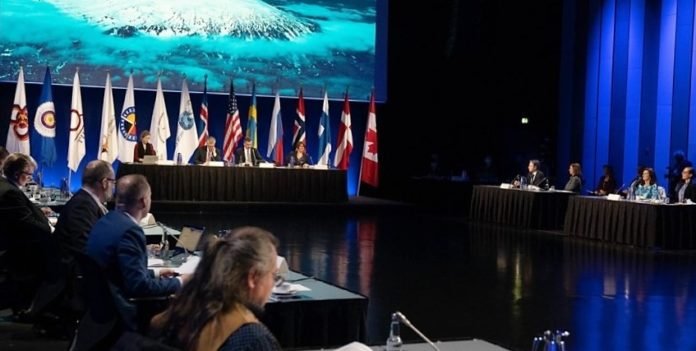Complexities in the Negotiations between Norway and Russia for the Chairmanship Transfer of the Arctic Council
As the Arctic region experiences significant changes due to climate change, the intergovernmental body responsible for the area, the Arctic Council, has been caught in a complex negotiation process between Norway and Russia. The discussions revolve around the transfer of the chairmanship of the council to Norway after the organization temporarily halted its operations.
The Constructive Negotiation Process between Norway and Russia
According to a report by Bloomberg, Norway is currently in a “constructive negotiation process” with Russia to ensure a smooth transfer of the chairmanship of the Arctic Council. However, the negotiations are not without challenges, as both countries have different agendas and priorities for the region.
The Virtual Transfer of Chairmanship and Government Ministers’ Participation
In an effort to comply with COVID-19 protocols and travel restrictions, the process of transferring the chairmanship from Russia to Norway may take place in a virtual format. However, it is noted that government ministers are unlikely to participate in the meeting, which could have significant implications for the outcome of the negotiations.
The Arctic Council: A Platform for Cooperation in the Region
The Arctic Council is the main intergovernmental forum for cooperation in the Arctic region, which covers issues related to climate change, indigenous peoples’ issues, and governance. The organization was founded in 1996 by eight countries, namely Canada, Denmark, Finland, Iceland, Norway, Russia, Sweden, and the United States. Additionally, the council includes eight countries as members, while 13 countries participate as observers.
China’s Stance on Russia’s Exclusion from the Council
As an observer in the council, China’s stance on the negotiations is essential. The country may not support the exclusion of Russia, as it stated last year that there is no legal mechanism for this and it does not support Russia’s exclusion from the council.
Norway’s Goals as the New Chair of the Arctic Council
Norway has outlined several goals for its two-year chairmanship of the Arctic Council. According to Morten Hoglund, Norway’s senior official in the Arctic, the primary objective is to “ensure that the Arctic Council survives” amidst the changing climate and geopolitical tensions in the region. Furthermore, Norway aims to resume “all relevant contacts for all types of activities” after the transfer of responsibilities.
Russia’s Actions in Ukraine and the Halting of Arctic Council Operations
The intergovernmental body ceased operations after Russia’s full-scale invasion of Ukraine. All founding countries, except Russia, stopped working in the council in response to “blatant violations by the country of the principles of sovereignty and territorial integrity based on international law.” This move was a significant setback for the council’s operations and highlighted the geopolitical tensions in the region.
The Resumption of Projects without Russia’s Participation
Despite the challenges facing the council, there have been some positive developments. In June, the organization announced the resumption of work on projects in which Russia did not participate. Approximately 70 projects, which represent about half of the work approved by February, are now back on track. This move is a sign of progress in the region despite the geopolitical challenges.
Conclusion
The negotiations between Norway and Russia for the chairmanship transfer of the Arctic Council highlight the complexities and challenges facing the region. While both countries have different agendas, there is a need for cooperation to address the pressing issues facing the Arctic region such as climate change, indigenous peoples’ rights, and governance. The virtual transfer of the chairmanship and the lack of government ministers’ participation add to the challenges, but Norway’s goals for the council’s survival and the resumption of projects without Russia’s participation are positive steps forward. As the negotiations continue, it is essential to prioritize cooperation and collaboration to ensure a sustainable future for the Arctic region.











